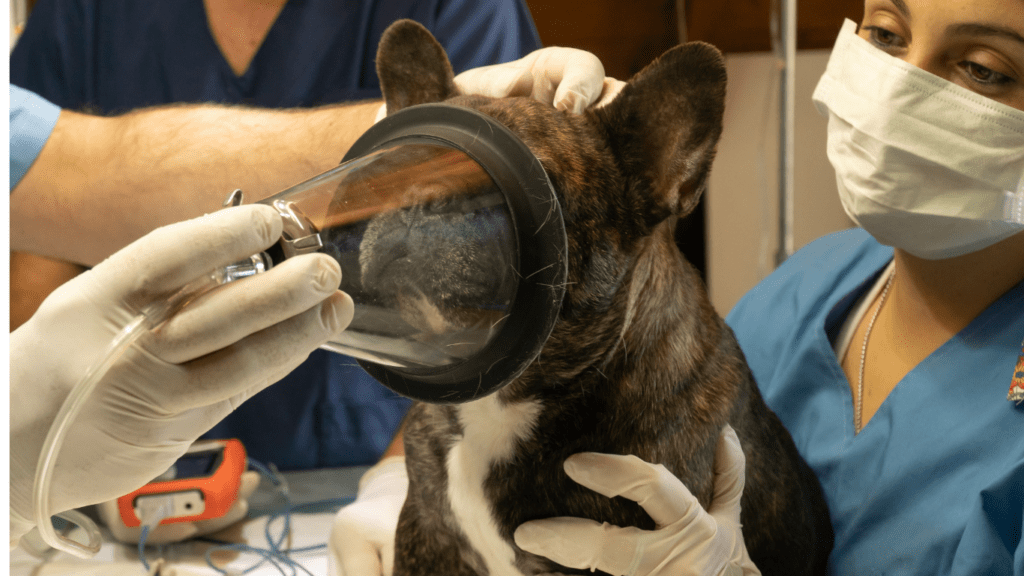Understanding Emerging Pet Health Issues
Emerging pet health issues refer to new or re-emerging diseases that can impact pets. These health concerns can arise from various factors such as environmental changes, increased exposure to wildlife, or even evolving pathogens. Understanding these issues is crucial to ensure that pets receive timely and appropriate care.
One significant emerging issue is the rise of zoonotic diseases. These diseases can transmit between animals and humans. For example, diseases like Lyme disease and Leptospirosis have seen increased incidence in pets due to greater tick and rodent populations. Owners should be vigilant in recognizing symptoms like:
- fever
- lethargy
- loss of appetite
Another concern involves antibiotic-resistant bacteria. With the overuse of antibiotics in veterinary care, some bacteria have evolved to become resistant to standard treatments. When infections don’t respond to conventional antibiotics, it poses a higher risk to pets and requires more complex and costly interventions.
Climate change plays a role in shifting the geographical spread of vector-borne diseases. Warmer temperatures allow vectors such as mosquitoes and ticks to thrive in previously unaffected areas. Diseases like Heartworm and Ehrlichiosis are now surfacing in new regions, posing fresh challenges for pet owners and veterinarians.
Vaccination-resistant strains of diseases are another area of concern. New strains of common diseases like Parvovirus and Bordetella are emerging, potentially rendering standard vaccines less effective. Monitoring for updates on vaccination protocols and discussing them with veterinarians can help keep pets protected.
Lastly, urbanization has led to increased pet exposure to pollutants and chemicals. Pets living in urban environments might develop respiratory issues or skin conditions due to poor air quality and exposure to toxic substances. Regular vet check-ups and a clean living environment can mitigate some of these risks.
Recent Trends in Pet Health

Emerging pet health issues demand that owners stay up-to-date with the latest trends. These trends highlight the importance of understanding specific health risks.
Increasing Obesity Rates
Obesity in pets is becoming a significant concern. According to the Association for Pet Obesity Prevention, approximately 56% of dogs and 60% of cats in the US are overweight or obese. This trend leads to various health issues, including diabetes, arthritis, and reduced lifespan. Common causes include overfeeding, lack of exercise, and high-calorie treats. To combat this, ensure pets receive balanced diets and regular physical activity.
Rise in Chronic Diseases
Chronic diseases are on the rise among pets, with conditions like diabetes, kidney disease, and heart disease becoming more common. The American Veterinary Medical Association reports an increase in chronic conditions due to pets living longer and the effects of lifestyle factors like diet and activity level. Regular veterinary check-ups and early detection are crucial for managing these illnesses effectively. Additionally, tailored treatment plans and ongoing care can help maintain your pet’s quality of life.
Common Emerging Health Issues
Emerging health issues in pets require attention to maintain their well-being. This section outlines key problems pet owners should be aware of.
Allergies and Skin Conditions
Allergies and skin conditions in pets are becoming increasingly prevalent. Common allergens include pollen, dust mites, and certain foods. Symptoms of allergies often manifest as itching, redness, and frequent ear infections. Skin conditions like dermatitis and hot spots also arise from allergic reactions and infections. Regular grooming, hypoallergenic diets, and veterinary-prescribed treatments help manage these issues effectively.
Infectious Diseases
Infectious diseases pose significant risks to pet health. Diseases like Lyme disease, caused by tick bites, and parvovirus, a highly contagious viral illness, are on the rise. Vaccination and preventive measures such as tick control and maintaining a clean environment are essential. Immediate veterinary attention is crucial if pets exhibit symptoms like fever, diarrhea, or lethargy.
Mental Health in Pets
Mental health in pets is an emerging concern, impacting their behavior and overall well-being. Issues like separation anxiety, depression, and obsessive-compulsive behaviors are increasingly diagnosed. Signs include destructive behavior, excessive barking or meowing, and withdrawal from social interaction. Providing mental stimulation through toys, regular exercise, and, if needed, professional training can improve a pet’s mental health.
Preventative Measures for Pet Owners
Regular vet check-ups, proper nutrition, and regular exercise play critical roles in maintaining pet health.
Regular Vet Check-Ups
- Veterinary check-ups should occur once or twice a year to monitor pet health.
- During these visits, vets conduct physical exams, update vaccines, and screen for illnesses.
- Early detection of conditions like diabetes, kidney disease, and infections increases treatment success rates.
- Regular vet visits also involve dental check-ups, which help prevent oral diseases.
Proper Nutrition and Exercise
Balanced diets tailored to pets’ specific needs help prevent obesity, diabetes, and other health issues. Consult veterinarians when choosing pet food to ensure it contains necessary nutrients. Regular exercise is crucial for weight management and mental health. Daily walks, play sessions, and interactive toys promote physical activity and reduce stress in pets.
Technology and Pet Health
Technology’s revolutionizing pet health. Modern advancements help owners monitor and improve their pets’ well-being effectively.
Wearable Health Monitors
Wearable health monitors track pets’ vital signs, activity levels, and sleep patterns. Gadgets like Whistle and FitBark provide real-time data on physical activity and rest. Veterinarians can use this data to identify early signs of health issues such as obesity, arthritis, or anxiety. For example, if a dog shows reduced activity, it might indicate joint problems. These devices also alert owners about deviations in normal patterns, prompting timely veterinary visits.
Telemedicine for Pets
Telemedicine allows virtual consultations with veterinarians, providing immediate advice and reducing the need for in-person visits. Services like VetNOW and FirstVet offer 24/7 access to veterinary advice through video calls or chats. This connectivity is crucial in remote areas where veterinary services are scarce. While not all conditions can be diagnosed virtually, telemedicine is beneficial for follow-up consultations, behavioral advice, and minor health issues like skin irritations or dietary consultations.



 Veterinary Advisor & Health Expert
Anthony Brooks is the in-house Veterinary Advisor at Pet Paw Shack, offering expert advice on pet health, disease prevention, and general veterinary care. With years of experience as a licensed veterinarian, Anthony helps guide pet owners through essential topics like vaccinations, routine checkups, and emergency care. His commitment to keeping pets healthy ensures that Pet Paw Shack delivers trusted and accurate medical insights.
Veterinary Advisor & Health Expert
Anthony Brooks is the in-house Veterinary Advisor at Pet Paw Shack, offering expert advice on pet health, disease prevention, and general veterinary care. With years of experience as a licensed veterinarian, Anthony helps guide pet owners through essential topics like vaccinations, routine checkups, and emergency care. His commitment to keeping pets healthy ensures that Pet Paw Shack delivers trusted and accurate medical insights.
